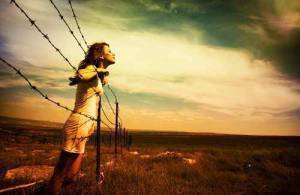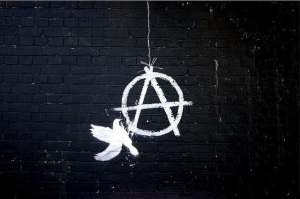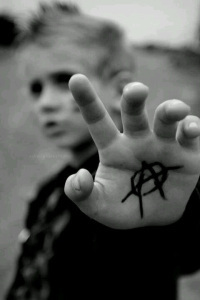Jim Palmer's Blog, page 12
April 4, 2015
Did Christianity get Jesus right? (14 posts I did about Jesus that shook things up)
“Jesus was a human being like you. He was a first-century Jew in ancient Palestine. We know about him today because the truth he shared distressed a deep-rooted, 4,000-year-old religion and threatened the political and societal power centers of his day. He sure raised quite a bit of hell for one guy! Ultimately, those religious and political powers conspired together to have him killed.
Why? What danger did Jesus pose to these powers that resulted in his execution?
The truth that Jesus shared and demonstrated debunked the foundational premises on which those religious and political systems were built. Jesus called for people to stop listening to them and start listening to the spirit of truth within themselves. He attacked the credibility of those systems and told people to find their authority inside themselves. Instead of a human-led society, he was advocating a world ruled by an amazing power or Spirit mind that was already within us. Jesus called it the kingdom—the authority—of heaven. Each time Jesus opened his mouth, he was pulling out another wooden Jenga block, making these religious and worldly powers vulnerable and unstable. Jesus himself was no threat—he had no position of religious or political power and wasn’t campaigning to be the worldly president—but his truth made him a one-man wrecking crew.
If Jesus were alive today, that scenario would repeat itself. He would come to his people—the Christian establishment—and they would quickly discover that his truth doesn’t line up with their longstanding, “orthodox,” theological tradition. Protecting their church kingdoms, Christian leaders would come out with guns blazing. Like first-century Jews, they would reject Jesus, label him a heretic, characterize him as a dangerous inciter, and ostracize him. As Jesus stirred things up and more people started listening to and following him, he would become a person of interest to our worldly and political powers. The government would not allow the rebel Jesus to go on like this—it might just get people questioning their dogma and authority as well.”
– Jim Palmer, Inner Anarchy
There are many spiritual, religious and theological reasons given for why Jesus was crucified. Here’s an explanation that perhaps you’ve not heard – Jesus was executed because he was a terrorist. The Christian religion has a story and narrative about Jesus that is especially proclaimed during the Easter season. But is this narrative true? I explore this question in great detail in my book Inner Anarchy, and summarize a few thoughts about it in this post.
There is an alternative way to understanding Jesus from what is often taught by Christianity. Here are 14 posts I wrote about Jesus that shook things up:
15 liberative teaching of Jesus that you wont hear in church
Why I believe in Jesus (Why am I not a Christian)
Is Jesus real? (And why do I insist upon talking about him?)
The only Jesus there is… is the Jesus-spirit within you
The difference between Jesus and religion
Jesus did not institute the Christian church
Jesus cannot be defined by religion (not even the Christian one)
Did you ever hear in church that Jesus was an anarchist?

April 3, 2015
15 liberative teachings of Jesus that you won’t hear in church
15 liberative teachings of Jesus that you won’t hear in church:
“There’s only one litmus test to authenticate if someone gets what I’m about – love.”
“The kingdom of God is here and now, which means it’s not somewhere else and later.”
“If you’ve reached perfection on your journey, feel free to judge others. Otherwise, be quiet.”
“My peace is not as this world gives. Your strategy to control circumstances in order to be happy won’t work… ever.”
“You religious people have your nose buried in the Bible, feeling all smug about your spiritual maturity. But you wouldn’t know my truth if it knocked you in the head.”
“There is no mountain, sacred place or church building where God expects to be worshiped. True worship is a way of seeing – it’s spotting and honoring the divine in all things.”
“You think you are doing well because you have not been hauled off to prison for murder, but your harsh and critical spirit is no different.”
“Embracing my truth will make you a heretic in most people’s minds and you will be persecuted. No worries; you’re on the right track in my kingdom.”
“God and I are one, you are included.”
“I have to die. Otherwise, you’re going to create a religion around my human personhood and personality, rather than embrace and give expression to my spirit and truth.”
“Don’t say you love God and then hate people. Those two things can’t be true at the same time.”
“You and God are not separated and never have been. You are connected to God like a branch to a vine – the essence and nature of God is the sap running through your veins.”
“You can’t reduce my way to a book. The same spirit that filled and led me fills and leads you. Follow that spirit.”
“You think your humanity is an affront to God. If this were true how could I be one with God?”
“You look into the sky to find some God that sits on a throne. You want to see God? You’re looking at him. Now, see that same God as yourself.

March 31, 2015
Spirituality and depression
“Let me be as clear as possible. Depression is not a “spiritual problem” or a sign that you are somehow failing God. Our life is our spiritual path, and we live it by responding to situations as they require. For some, that situation requires you seeking professional support for depression. That is spiritual enlightenment! It’s not being attached to false ideas about depression, and simply doing what the situation requires and seeking the help you need. 80% of people who have depression are not being treated. Don’t be part of that statistic!
The outcome of transformation, awakening, or enlightenment is not the absence of difficulties. It is coming into the awareness or correct perception of the true nature of things. It’s seeing the fundamental, unchanging, and underlying truth of your Self and all things. Meanwhile, you have a mind and body that has been conditioned by a lifetime of experiences and circumstances. We should not expect that those just magically and instantaneously disappear.
For example, an unenlightened person who has depression becomes an enlightened person who has depression. Either way, the depression is there. The difference is how you relate to your depression.
Consider that the enlightened person is awakened to the underlying, unchanging, and fundamental essence of who they are. Knowing this, they see their depression differently – their depression is not something they ARE but something they HAVE. They don’t judge it as something “bad” or “wrong,” but just something that IS.
What we resist, persists. People resist and strive to eliminate their depression because they have fundamentally attached their sense of self to it. But consider another option. Knowing that your depression is not even relevant to the truth and reality of who you ARE, why not make space for it in your life as something you HAVE. Think of all the things you have in your life. Just look around you right now and see the things you have – a lamp, a table, a couch, a coffee mug, a plant, a cat, etc… Okay, you have something else to add to the list. Depression. You have depression.
What does having depression mean?
Does it mean there is something wrong with you? No. There is nothing wrong with you. You are as God created you – complete and whole.
Does it mean you are a failure in your spiritual life? No. Let me ask you a question. If you have arthritis, does that mean you are not spiritual enough or not enlightened? Of course not. It’s the same with depression. We only see it differently because we have created a special category for depression, and falsely imagine it is different. But there really is no difference between arthritis and depression. Neither one are a sign of spiritual immaturity.
Our bodies and minds are the way they are as a result of a lifetime of experiences, circumstances, and conditions. For some people, that manifests in the form of arthritis. For some people, it manifests in the form of depression.
If you have depression, rather than making it/you bad or wrong and constantly fighting it and striving to fix or eliminate it, consider making a space of acceptance for it in your life. Do not judge it as “good” or “bad” – it just IS. What you are and what you have are two totally different things. What you ARE is complete and whole. What you HAVE is any number of different things, including depression.
Inside that space of acceptance, respond as the situation requires with your depression and let that be your path forward. Perhaps the situation requires that you take medication to manage your depression. Perhaps the situation requires that you make certain lifestyle changes. Whatever the situation requires regarding your depression, do it. That’s your spiritual path. In other words, part of your spiritual path is your relationship to your depression.
Depression has been something I’ve had to contend with in my own life. It’s not pleasant. But religion often adds insult to injury through the false notion that if we are spiritual enough and really know the truth or have enough faith, then we shouldn’t have depression. That’s like saying, if I’m spiritual enough, I shouldn’t have arthritis. I can’t tell you how insane that whole idea is.
Depression is different for every person – how one experiences it, the approach for treating it, how it manifests in a person’s life, etc. But consider that having depression is not an obstacle or antithetical to your spiritual path. Your relationship to your depression IS your spiritual path.
Major depression is a common and treatable mental disorder. If you or someone you love struggles with depression, it’s important to seek out help.”
***
The above excerpt is from my book, Notes from (Over) the Edge – specifically from a section in which I address the issue of depression.
According to the World Health Organization:
1. Depression is a common mental disorder.
2. Globally, more than 350 million people of all ages suffer from depression.
3. Depression is the leading cause of disability worldwide.
4. More women are affected by depression than men.
5. At its worst, depression can lead to suicide.
6. There are effective treatments for depression.
According to the Centers of Disease control:
1. 1 in every 10 Americans suffer from depression.
2. The number of people who are diagnosed with depression increases 20% each year.
3. People who have major depressive disorder are the leading cause of disability in the U.S. for ages 15 – 44.
4. 60% – 80% of depression can be treated with medication and psychotherapy.
5. 80% of people are not being treated who have depression.
Major depression is a common and treatable disorder. If you or someone you love struggles with depression, it’s important to seek out help. You can begin exploring how to get help at this site.

March 30, 2015
The spirituality of anarchism
What is the relationship between spirituality and anarchy?
It should be acknowledged first that anarchist sentiments typically oppose organized or institutional religion, and its construct of “God.” Notable anarchist Mikhail Bakunin wrote, “The first revolt is against the supreme tyranny of theology, of the phantom of God. As long as we have a master in heaven, we will be slaves on earth.” Marx wrote, “Religion is the opium of the people.”
Emma Goldman spoke out against what she believed to be the falsehoods of Christianity: “Christianity is most admirably adapted to the training of slaves, to the perpetuation of a slave society; in short, to the very conditions confronting us today. The rulers of the earth have realized long ago what potent poison inheres in the Christian religion. That is the reason they foster it; that is why they leave nothing undone to instill it into the blood of the people. They know only too well that the subtleness of the Christian teachings is a more powerful protection against rebellion and discontent than the club or the gun.”
There are some who would say that to be anarchist is to be atheist. Gustave Brocher wrote, “An anarchist, who wants no all-powerful master on earth, no authoritarian government, must necessarily reject the idea of an omnipotent power to whom everything must be subjected; if he is consistent, he must declare himself an atheist.” There is logic in associating anarchy and atheism. Too often the Church has supported the State, and many times these two hierarchies of power have acted corruptly together out of self-interest. It is a tragic tale of history that organized religion has often been an oppressive institution the likes of which anarchists seek to abolish along with the State. Aristotle wrote, “A tyrant must put on the appearance of uncommon devotion to religion. Subjects are less apprehensive of illegal treatment from a ruler whom they consider god-fearing and pious. On the other hand, they do less easily move against him, believing that he has the gods on his side.” William Hazlitt said, “The garb of religion is the best cloak for power.”
Perhaps the greatest injustice of religion has been covering up and concealing the anarchist spirit of their own spiritual leaders. Case in point – Christianity and Jesus. Jesus was an iconoclast who rejected, opposed, subverted and undermined the religious and government hierarchies and powers of his day. He called the “God” of religion a “liar” and “murder.” Jesus challenged people to turn away from the false beliefs, mindsets, narratives and ideologies that were programmed into their heads through religion and government, and to find their truth within themselves through a higher awareness that is naturally present in every person. He told people they were not in need of a cleric or teacher to show them the way, and that the power and authority to direct their lives was within themselves. Contrary to Christian teaching, Jesus never taught that human beings are intrinsically bad and sinful, or that our humanity is an obstacle to overcome, a limitation to transcend, or an offense in need of forgiveness.
Having a Master of Divinity degree myself and many years a religious leader before leaving organized religion behind, I vigorously deconstructed my Christian beliefs and practices and found them grossly inconsistent with the life and teachings of Jesus. I wrote extensively about this in my third book: Being Jesus in Nashville: Finding the Courage to Live Your Life (Whoever and Wherever You Are). The book was not without controversy. My Christian publisher accused me of heresy, refused to publish the book, and promptly canceled my publishing contract. In the years that followed, I discovered a very different Jesus than the one associated with Christianity. I share this view of Jesus in my latest book: Inner Anarchy: Dethroning God and Jesus to Save Ourselves and the World.
Throughout history there have been groups who were inspired by the life of Jesus to live as anarchists. For example, the Doukhobors, dating back to the 17th and 18th century Russian Empire, believed in God’s presence in every human being. They considered clergy and rituals unnecessary. Their rejection of secular government, the Russian Orthodox priests, icons, all church ritual, the Bible as the supreme source of divine revelation, and the divinity of Jesus elicited negative response from the government and the established church. There has been an enduring thread of Christian anarchism through the ages – movements of people who see anarchism as inherent in Jesus’ life and teachings.
Adin Ballou (1803–1890) was founder of the Hopedale Community in Massachusetts, and a prominent 19th century exponent of pacifism, socialism and abolitionism. Through his long career as a Universalist (and then Unitarian) minister, he tirelessly sought social reform through his radical Christian and socialist views. Tolstoy was heavily influenced by his writings. Leo Tolstoy (1828–1910) wrote extensively on his anarchist principles, which he arrived at through his Christian faith. He has several books related to this, most notably, The Kingdom of God Is Within You, which is regarded as a key Christian anarchist text. Henry David Thoreau (1817–1862) was an American author, pacifist, nature lover, tax resister and individualist anarchist. He was an advocate of civil disobedience and a lifelong abolitionist. Though not commonly regarded as a Christian anarchist, his essay Civil Disobedience does include many of the Christian anarchist ideals. William B. Greene (1819–1878), an individualist anarchist based in the United States, was a Unitarian minister, and the originator of a Christian Mutualism and mutual banking. There is a litany of people through history who have found their anarchist inspiration in Jesus – Nikolai Berdyaev, Peter Maurin, Ivan Illich, Vernard Eller and Dorothy Day to name a few.
Perhaps at this point it would be useful to mention that not only is it not a prerequisite to be atheist to be anarchist, neither is it necessary as an anarchist to hold belief in Jesus. But even if one did, it would not require them to subscribe to the Christian religion.
Be that as it may, I do believe there is a connection worth exploring between one’s inner life and the sentiments and efforts of anarchism. I recently explored this topic in a 3-part blog series entitled: Inner + Anarchy = New World. Part One explores a perplexing saying of Jesus in which he states that he did not come to bring peace but a sword. In Part Two I discuss what contemplatives and activists can learn from each other. Part Three establishes the necessity for inner work as a foundation for a sustainable anarchy.
The work of inner anarchy involves turning away from the false beliefs, mindsets, narratives and ideologies that have been programmed into our heads, and turning toward that higher spiritual awareness within us that operates in the realm of love, harmony, peace, oneness, and well-being. It’s about being an expression of that higher awareness in our world by divesting ourselves from the current systems that operate upon those false mindsets, narratives and ideologies, and birthing a new reality in its place by all of us taking direct action together. There are many different paths and ways that connect us with that higher awareness within us. Too often we have become too attached to our particular way rather than simply living from that highest common denominator that is within us all. This could be a starting place in terms of connecting spirituality to anarchism. We meet each other in that place of higher awareness where we know that love, liberation, harmony, peace, oneness and well-being is what we are here for. Together, we imagine and work together toward that world for everyone.
There is a community of inner anarchists on Facebook if you have an interest in joining a group of people that connect and converse about this journey.

March 25, 2015
Offering spiritual direction
I have a spiritual direction practice. This includes seeing people face-to-face who live in the Nashville and Middle Tennessee area. I also do spiritual direction with individuals over the phone or through Skype. For example, yesterday I did both – saw someone who lives in Nashville, and had a call with someone else. Some of the reasons people seek out spiritual direction include: wanting to connect with a safe person to work through issues on their spiritual journey; needing support and guidance in unraveling themselves from religious pathology; or wanting to deepen and expand their spirituality in new ways. I do spiritual direction based on a “gift economy,” which invites each person to make a financial donation to the Friends of Jim Palmer PayPal Fund for each spiritual direction meeting or call. If this is something you are interested in exploring, you can email me at: nobody.jimpalmer@gmail.com

March 24, 2015
Raised on spectatorship and submission
“For the civilian born in captivity and raised on spectatorship and submission, direct action changes everything. The morning she arises to put a plan into motion, she awakens under a different sun – if she has been able to sleep at all, that is – and in a different body, attuned to every detail of the world around her and possessed of the power to change it. She finds her companions endowed with tremendous courage and resourcefulness, equal to monumental challenges and worthy of passionate love. Together, they enter a foreign land where outcomes are uncertain but anything is possible and every minute counts.”
– The Anarchist Cookbook

Social justice and the inner life (how I got here)
Social justice has been a significant part of my journey. Years ago it’s what led me to take the helm of an NGO that works with juvenile delinquency, structural injustice, impoverished communities and at-risk families. For a season I traveled abroad with a human rights agency in Washington, D.C., working cases of forced child prostitution, human trafficking, and child slave labor. I was heavily involved in Occupy Nashville, and led an Occupy Religion effort that worked to unify different religious and spiritual groups together as advocates and support systems for those in crisis and need in our communities. In the process I got a very close look at our citywide mental health systems and services, which are grossly inadequate and negligent.
At the same time, I have also been very drawn to the exploration of the inner life. At first this took me down the path of religion. But ultimately I shed this part of me to seek more expansive spiritual vistas beyond the mindsets and mentalities of religion. Over the years I have paid several visits to the nearby Abbey of Gethsemani (Thomas Merton monastery) to send extended periods of time in quiet and solitude. I am more in-tune these days with a higher spiritual presence or awareness within me, which is a source of deep joy, peace, freedom, harmony, homecoming and well-being. The last few years my inner work has involved turning away from the false religious and worldly beliefs, mindsets, narratives and ideologies that were programmed into my head, and switching to a different source and authority within myself. I have found it to be as simple, effortless and natural as a child at play, but difficult to the extent that this natural place has been greatly assaulted and driven out of us.
The term “inner anarchy” truly fits where I am now. That higher spiritual dimension of my inner life fuels my passion to eradicate the systems, structures, powers and hierarchies of our world that operate upon those false and oppressive mindsets, narratives and ideologies. In its place I want to birth a new reality with others that is an expression of that world of love, harmony, oneness and abundance that is within us.

March 23, 2015
Let there be a silent tacit understanding and no more.
“This book is not the Truth.
The Truth is not something that can be elucidated through words. Every thought and idea in this book is a temporary expedient or provisional means to point you in the direction of Truth so you will be liberated from your suffering.
Form no concepts from this book. Create weaker concepts as you go.
You might take from this book that there is God, a true Self, a mind-body-personhood-ego, and the world. This adds up to four different and distinct things. This is not the way things really are. There is only One thing and there is no contradiction between anything.
There is no such thing called “Christianity.” “Christianity” is a word that people chose to indicate a particular religious system for knowing God through the person and teachings of Jesus Christ. But the religion and the person are often two very different and unrelated things. Jesus was an expression of the Truth, and through his life and teachings we have been given every opportunity to discover the Truth for ourselves.
The Truth and how one comes to know it cannot be formulated.
To see things as they truly are is a turning about at the seat of your consciousness, and the end of your suffering.
Look for no place to abide. Do not seek any outcome in your knowledge of the Truth. Have no expectation. Only return to the present moment and respond as the situation requires.
You have a lifetime of habit energy that drives your life forward in false perception and many preferences, both of which trip you up. Don’t make it a goal to change this. Simple awareness is all that is required. See yourself and have awareness of your habit energy and then immediately return to the present moment and the wisdom of your true Self.
Don’t involve yourself with hypothetical scenarios when it comes to Truth. Deal with what comes up in your life and the lives of others that you are relating to.
Do not seek any identity or attach yourself to any feelings of spiritual superiority. Only be grateful that your ignorance has fallen from your eyes. Be a servant of all, and do what aids the liberation of all humankind.
Have compassion. For there are many travelers along the way who suffer.
There is never any reason to argue about God. There is no being “right” or “wrong” about God since God cannot be known in the mind. Instead of debating about God, seek only to love others and you will not be so concerned about your arguments.
Determine to not hurt others intentionally. It’s enough to deal with those we have hurt unintentionally.
Don’t get hung up on concepts. There is no experience of non-duality because all experience happens in your mind. There is nothing more to know in and through your mind.
Do not make the mistake of thinking that there are so many things that you must know to be free. Instead, consider that it is all that thinking that is getting in your way.
Be gentle with yourself. Have compassion for yourself. Do not be so hard on yourself. You are the one in most need of your own love and grace.
This book was based on years of notes I wrote to myself in my own journey to know the Truth, and end my suffering. I just now tore all those notes to shreds and threw them in the trash.
Tomorrow morning I will wake up once again as a beginner. I will not hold tightly to any note I have ever written. I will be present in the next moment and make whatever slight response is suited for the occasion. I will rest in the perfect peace and well-being of all things as One.
The way is not something which can be studied. You know the truth and always have. It is now time to accept what you know. Every day you must accept it and relentlessly apply it to each and every situation, thought, and circumstance that arises.
Do not judge but see every man as your brother and every woman as your sister. Be not selective in your compassion. Be a son or daughter of Adam and cast your lot with all humankind and living things.
There is no separation.
Be humble. In your enlightenment you gained nothing, you attained nothing. You only saw the way things are and always have been, and will be.
There is sadness in this world but I have discovered a joy that is deeper. The sadness does not diminish the joy. The joy does not protect you from the sadness.
Away with all thinking, explanation, and words!
Let there be a silent tacit understanding and no more.”
– Jim Palmer, Notes from (Over) the Edge

March 17, 2015
Luck, leprechauns, and seeing your life differently
St. Patrick’s Day is the national holiday of Ireland, which celebrates Saint Patrick, one of the patron saints of Ireland. In the United States, the day is widely celebrated. The Chicago River is dyed green, and there’s the well-known parade in Boston, the longest-running Saint Patrick’s Day celebration in the U.S. Many people will celebrate by wearing green, the color most widely associated with Ireland.
A popular symbol of Ireland and St. Patrick’s Day is the leprechaun. In Irish mythology, a leprechaun is a type of male fairy. Along with hiding pots of gold at the end of rainbows, leprechauns are said to bring good luck. The Notre Dame Fighting Irish mascot is a leprechaun. We’ll see if this holds up in the NCAA Men’s Basketball Tournament.
So with St. Paddy’s Day here and thoughts of leprechauns in my head, I got to thinking about luck. What is luck? Does it really exist? We’re all aware of “good luck charms” like a rabbit’s foot, necklace or four-leaf clover, which are said to bring good fortune. Some people have a “lucky number” or a “lucky dress.” We’ve heard phrases like, “It’s better to be lucky than smart.” Is Friday the 13th really an unlucky day? If a black cat crosses your path or you open an umbrella inside your house, will that bring bad luck? If you find a horseshoe or a penny heads up, will this bring good luck? Is any of this stuff for real? What’s the deal with luck?
“Luck” is defined as “an unknown and unpredictable phenomenon that causes an event to result one way rather than another.” Luck refers to that which happens to a person beyond their control. If something happens to your advantage, it’s “good luck.” If it results in something negative, it’s “bad luck.”
Science does not support the concept of “luck,” and instead says “luck is probability taken personally.” In other words, science holds that everything that happens to you is simply a matter of numerical odds. A brick falling on a person walking is not a function of that person’s “luck,” but is instead the result of a collection of explainable occurrences. Statistically, every person walking near the building was just as likely to have the brick fall on them. Anything can happen to anybody, but when it happens to you, an added significance is applied and you seek some explanation for it or apply some concept to it, like luck.
The concept of luck relates to circumstances. People hope for “good luck,” which implies something positive happening, and fear “bad luck,” which is equated with some unfortunate occurrence. The entire mentality is based on the fallacy that our well-being is contingent upon our circumstances.
Christians sometimes share in this fallacy by living as if their peace, security, identity, worth, identity, purpose, contentment and fulfillment are determined by circumstances. The value of God is seen in His ability to influence life’s situations for the good or offer protection from adversity or misfortune. One of the most common forms of prayer is asking God to intervene and change our circumstances. We often equate God’s “blessing” with things going our way.
Jesus continuously pressed people to see that the source of their deepest desires was not outside themselves but inside them. Jesus announced that God’s kingdom had come. Listening bystanders began looking around befuddled. Jesus said they needed to look inside themselves to find this kingdom. Jesus taught that the same spirit within him that connected him to love, peace, freedom, wholeness and well-being is that same spirit within each of us. Paul discovered that this kingdom and divine presence within him was the secret to his contentment. He wrote in Philippians 4:11, “I have learned to be content whatever the circumstances.” Pretty amazing for a guy who often seemed “down on his luck”―imprisoned, beaten, hungry, and shipwrecked…three times!
In our human view, circumstances are classified as either “good” or “bad,” but this view falls short of the truth. No circumstance can strip you of the choice and power to: create an empowering context for yourself; make good on what really matters to you; have a breakthrough in transformation; give expression to your true Self; honor your highest truth; be authentic; and love. No circumstance can cut you off from the kingdom of heaven within you where true belonging, abundance, harmony and well-being are found. Even the worst of circumstances never threaten these inner realities.
Let’s say this week something unusual and unexpected happens in your life that really messes things up for you. “Luck” would say you were the victim of forces outside your control. Onlookers might offer sympathy, recognizing how unfortunate your circumstances are and the misfortune they caused. Inside you’re thinking, “Why me? This sucks!”
Stop! Turn it over in your mind. You’re not a victim of bad luck. What is available to you in that moment is to draw upon the love, peace, freedom, and fulfillment that is within you and constitutes your true Self. Turn within to the spiritual resources of the kingdom of heaven within. Rather than approach your circumstance with anger, stress, resentment, and fear, instead allow yourself to operate within that higher spiritual presence and awareness within you.
Remember spoon boy from The Matrix?
Spoon boy: Do not try and bend the spoon. That’s impossible. Instead… only try to realize the truth.
Neo: What truth?
Spoon boy: There is no spoon.
Neo: There is no spoon?
Spoon boy: Then you’ll see, that it is not the spoon that bends, it is only yourself.
Look at it this way:
Spirit: Do not associate your well-being with luck. Instead…only try and realize the truth.
You: What truth?
Spirit: There is no luck.
You: There is no luck?
Spirit: Then you’ll see, that it is not luck that determines your well-being, it is only my kingdom and presence within you.
Truth be told, people overstate the connection between leprechauns and luck with Ireland and Saint Patrick’s Day. Despite the many trials associated with Ireland, historically the Irish are known for being deeply spiritual people, preferring silence and solitude, and holding a great appreciation for ordinary life. They found a deep and abiding peace in the midst of turbulent times, which is expressed in this Celtic Benediction:
Deep peace of the Running Wave to you
Deep peace of the Flowing Air to you
Deep peace of the Quiet Earth to you
Deep peace of the Shining Stars to you
Deep peace of the Son of Peace to you

March 11, 2015
Inner + Anarchy = New World (Part Three: Something Old, Something New)
This is the third installment of a blog series I’ve been doing: Inner + Anarchy = New World. The series is expounding on themes of my recent book, Inner Anarchy.
Inner anarchy is turning away from those false beliefs, mindsets, narratives and ideologies that have been passed along through our family background or programmed into our heads through religion, education, mass-media, pop-culture, government, and other societal institutions. These beliefs and mindsets rule within us, and determine how we see ourselves, others, God, the world and life itself. They shape who we are and drive what we do. Equally important, inner anarchy is turning toward what is real in our deep feelings and what we know is true in our gut. Throughout the history of humankind there has been a witness to a higher presence, awareness, spirit or consciousness within every person. This higher awareness see and knows things as they really are and meant to be. It knows no separation, only freedom, peace, love, wholeness and harmony. This place within us has power and authority, and we typically experience it in those moments when something triggers and opens up those deep feelings of love, harmony and homecoming within us. Inner anarchy is switching sources from the stuff programmed in our heads to that higher presence and awareness within us.
I chose the words “inner” and “anarchy” to describe this. The root principle of anarchy is the absence of a ruling class. Combined with the word “inner,” the idea is for each of us to dethrone those false beliefs, mindsets, narratives and ideologies that have been ruling us from within and to instead turn to the power and authority of our inner awareness. I also chose the two terms because one implies a more inward reality, and the other rouses the sentiment of engaging the world in revolutionary ways. We need a personal revolution inside each of us first, and then this sets the stage for the passing of the old order and the birth of a new world.
In the second installment of this blog series I discussed how people typically gravitate either to the “inner” (contemplative) part, while others tend to lean more toward the “anarchy” (activist) aspect. Both are equally important, hence the title of this blog series: Inner + Anarchy = New World.
The “inner” folks run the risk of making the path mostly an individualistic and inward/personal reality, while the “anarchy” folks tend to run out the door to take on hierarchies of power without doing their own personal work. Neither of these approaches are going to work. A person must be equally aware of the significance of both – inner work and outer expression.
As a person questions and turns away from the false beliefs, mindsets, narratives and ideologies that have filled their head, they become more aware of how those beliefs and mindsets are driving and dictating the rules human have been trained to live by, and the systems and structures that perpetuate them. Once that inner revolution happens with a person they find it less tolerable to keep playing the game. A person who is serious about this begins to divest themselves from the game, and stops participating in the societal systems and structures that are part of it. Makes sense. How can someone continue to keep the rules and play a game that is based on lies and violates what we know inside is real and true?
This is what the “inner” people can learn from the “anarchy” folk. Whereas many people cannot even conceive the possibility of a society that operates without or outside those hierarchal systems, structures and institutions, anarchists see it quite clearly, and have no doubt that not only can we live “off the grid” of those systems and structures, but that it’s actually the only way for humankind to survive and thrive. Anarchist concepts such as voluntary association, mutual aid and self-organization are but a few specific and practical ways anarchists see society functioning without any ruling class or hierarchies of power. Can you imagine our society functioning without our current economic and labor models such as capitalism and corporatism? Probably not. Ask an anarchist and they will explain exactly how it could work. The anarchist mindset and sentiment is helpful because it shows and empower us to see that we can actually break our dependency on the system.
However, here’s the problem. Let’s say we divested ourselves from the current order, systems and structures that are operating upon those false beliefs, mindsets, narratives and ideologies. Let’s say we all did this and the old system and order went obsolete and faded away. What would we create in its place? Well I know this much, if whatever we construct was being generated out of the same source that created the first order, we would end up with the same mess all over again. History has proven this cycle countless times – liberators become oppressors. Why is this? Because the problem was never really the systems and structures themselves but the false beliefs, mindsets, narratives and ideologies driving them. Where are these false beliefs, mindsets, narratives and ideologies? Inside us… all of us!
The anarchy-minded people have to do their inner work – both sides of it: dethroning those false beliefs, mindsets, narratives, and ideologies programmed within them AND turning toward that higher presence and awareness within them. It’s a switch of sources. Anarchy itself can become just another ego-driven ideology that we beat people over the head with if it is being generated out of our heads. Any anarchy that is not being generated from that inner presence or awareness will eventually unravel into division, turmoil, chaos and unnecessary violence.
I’m not saying that a divestment from the old order and birthing a new world is going to be rainbows, ponies and unicorns. When tectonic plates are shifting there is instability. The old order and its mindsets and ideologies are not going to go quietly into the night. There will be conflict and confrontation. Hence, my first post in this series about what Jesus meant when he said he did not come to bring peace but a sword.
We should not think that the new world is just going to be some re-configuration of ideas that we mine out of our heads. The true source for a new world is that higher inner presence and awareness within us all. We must listen, trust, follow, speak, lift up and live what we know is real and true from that deep awareness.
We have to wed the two together: Inner + Anarchy = New World.













